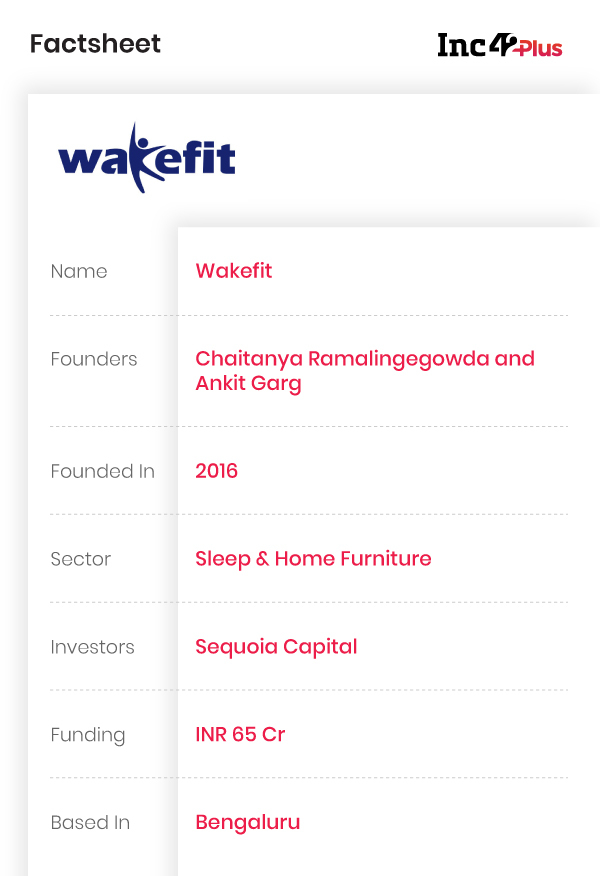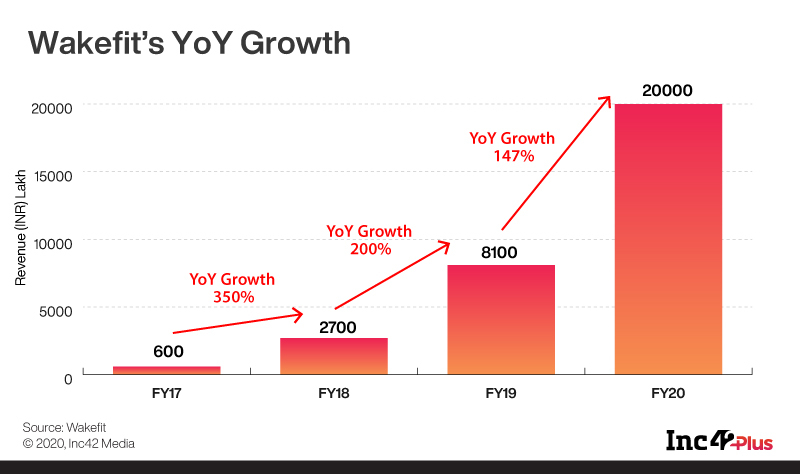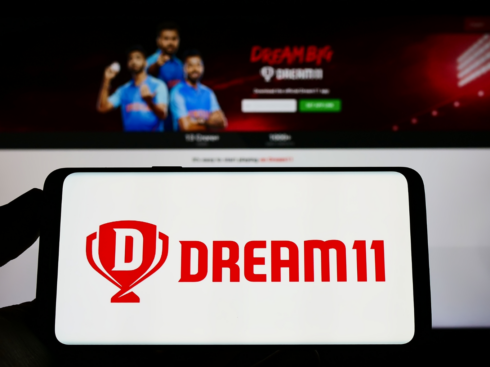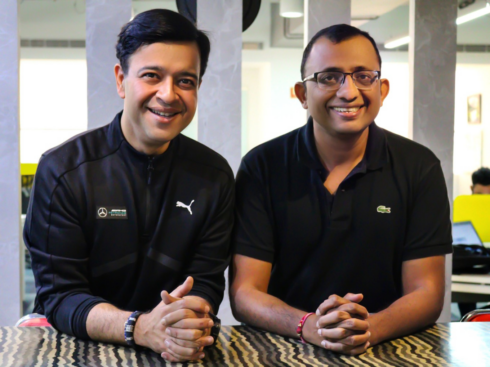SUMMARY
Bengaluru-based digital-first, sleeptech startup Wakefit forays into home furniture products amid pandemic, and claims to be selling 100s of units per day
In the last three months, Wakefit claimed to earn revenue from Tier 2 cities like Mysuru, Lucknow, Surat and Kanpur among others, accounting for 50% of its total sales
Wakefit has expanded to multiple hubs, including Bengaluru, Hyderabad, Mumbai and Delhi NCR, and looks to deliver all its products in less than 24 hours across the country
As pandemic continues to shape and transform the preferences of consumers in India, it becomes imperative for homegrown brands to adapt to online strategies and capabilities to weather and recover from the current crisis. For digital-first, sleep solutions brand Wakefit, this changed little, and this clear focus on online selling holds a lesson or two for other D2C brands.
“65-70% of our revenue comes from our native website, and remaining 30-35% from ecommerce marketplace such as Amazon, Flipkart etc” cofounder Chaitanya Ramalingegowda told Inc42.
In a world, where survival for D2C brands is tough without a lion’s share of the revenue coming from ecommerce marketplace and aggregators, Wakefit has upended the trends and has clearly emerged as a champion of sorts for the D2C wave.
So how did this mattress brand achieve such a split in its revenue?
Ramalingegowda believes that brands today have a notion that marketing is something that involves glamorous ad campaigns that work once in a few quarters. Wakefit, on the other hand, believes that it is about doing the basics right and not just for glory through large campaigns. It focussed on effective yet affordable strategies that digital brands have taken for granted — SEO, SMM, performance marketing on Amazon, Google, Facebook and Instagram among others.
The second key was heavily investing in word-of-mouth marketing, where Wakefit often requests users to write reviews and share their experience after purchase. This keeps the company in the consumer mind and drives conversions for people that are looking for mattresses.
“Nearly 40-50% of potential customers come to our platform via family or friend referrals,” added Ramalingegowda, which again tells D2C brands that it’s not just about mega campaigns, such as the ones we are seeing in the ongoing Indian Premier League. Despite this, given the frenzy around the tournament, the company is looking to launch new marketing campaigns during the ongoing IPL.
Wakefit Awake To The Home Furniture Boom
Founded by Ramalingegowda and Ankit Garg in 2016, Wakefit was one of the early entrants in the sleep solutions space that has since seen an explosion of brands. The company offers a range of products, including mattress, bed frame, pillows, bedsheets, neck pillows, back cushion, mattress protector among others. Recently, it also ventured into home furniture solutions products, which includes study tables, sofa, bookshelves, shoe racks among others, competing with the likes of online furniture startups Furlenco, Pepperfry, Rentomojo and others.

While it’s primarily known as the mattress brand, that may be changing. The cofounder told us that its mattresses, sofas and study tables were the most purchased products during the pandemic lockdown. “The mattress sales went up by at least 25 to 30% from the pre-COVID numbers,” he added.
Further, Ramalingegowda said that in the last three months, in the furniture category, Wakefit is selling hundreds of pieces every day. This vindicates the company’s hypothesis for launching this new category — people are spending a lot more time at home and want the same quality for work-from-home as they do for sleep.
The Road To Profitability In D2C
Backed by Sequoia Capital, Bengaluru-based Wakefit has witnessed an exponential revenue growth in the span of five years — it’s one of the stand-out brands in the D2C arena, as seen in the Inc42 Plus analysis of financial performance of India’s D2C market. For instance, in FY19, Wakefit’s revenue stood at INR 81 Cr and in FY20 it witnessed a 147% jump.

Ramalingegowda attributed this growth to its product and consumer-focused approach. He believes that a lot of companies lose their ways when they witness such revenue growth. “Revenue should be a byproduct of good experience, not the metric that we chase in isolation.”
Besides Wakefit, a lot of digital-first D2C sleep tech startups are cashing in on the $1.4 Bn opportunity, including The White Willow, Cuddl, Mattress Box, Wink & Nod, Sunday and Sleepy Cat, which are addressing the hitherto unmet customer needs in a traditionally unorganised industry.
“When we compare our sleeping products with other reputed brands, we are at least 20-30% cheaper than them,” said the cofounder, adding that things such as longer warranty and trial periods are useful in building trust.

Leaning On Data-Led Growth
Apart from its affordability and D2C approach, Wakefit claims to have data of thousands of customers in the last five years, which it has gathered by tracking the demand and search volumes. This allowed Wakefit to target sales in particular cities. It witnessed a massive spike coming in from Tier 2 cities like Mysuru, Lucknow, Surat and Kanpur among others during the pandemic.
“This is really fascinating, as the top seven to eight metro cities which used to contribute 70% of revenue during the pre-Covid-19 times, has now moved to Tier 2 cities, contributing 50% of the total revenue,” shared Ramalingegowda.
While the demand has increased significantly, the consumer’s desire to get products more quickly has also increased. While buyers would be happy with a eight-to-ten-day wait for delivery earlier, that is not the case now.
Wakefit, which used to distribute from a central facility or hub in Bengaluru, had to change this model to address these gaps.
Lokesh Gupta, the company’s VP of logistics and supply chain told Inc42 that it set up a dedicated team to communicate with logistics partners and facilitate speedy deliveries. It also built mechanisms for regional demand forecasting and controlling inventory locally. “By dividing the country into clusters, we ensure that we assign ownership of each cluster to a senior logistics manager. As this helps in better management and control over logistics processes and customer deliveries,” explained Gupta.
Currently, Wakefit has expanded to multiple hubs, including Bengaluru, Hyderabad, Mumbai and Delhi NCR. It looks to deliver all its products in less than 24 hours across the country and said that it will continue setting up more warehouses and logistics support, thereby optimising resources and giving the cost benefits to the end customers.
[With inputs from Nikhil Subramaniam]



























